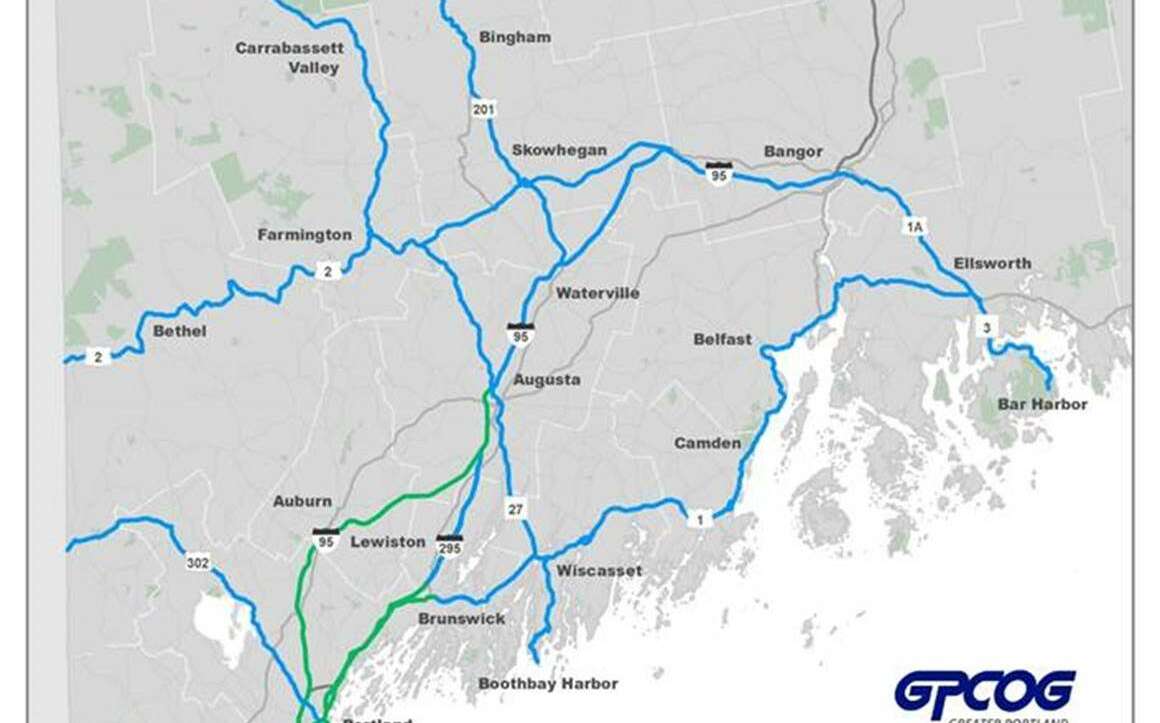
Federal government designates eight alternative fuel corridors in Maine
 Courtesy / The Island Institute
An electric vehicle charging station at Islesboro's Pendleton Yacht Yard. Using Maine’s Volkwagen settlement funds, Efficiency Maine, the quasi-state agency that runs programs to promote energy efficiency and reduce carbon emissions, contracted the California-based ChargePoint Inc. to install and operate 14 high-speed electric vehicle chargers at seven locations between southern New England, New Hampshire and Quebec.
Courtesy / The Island Institute
An electric vehicle charging station at Islesboro's Pendleton Yacht Yard. Using Maine’s Volkwagen settlement funds, Efficiency Maine, the quasi-state agency that runs programs to promote energy efficiency and reduce carbon emissions, contracted the California-based ChargePoint Inc. to install and operate 14 high-speed electric vehicle chargers at seven locations between southern New England, New Hampshire and Quebec.
The Federal Highway Administration has designated eight major road corridors in Maine for alternative fuel vehicles as part of an effort to build out a statewide network of fast chargers.
The new corridors will link Maine’s metropolitan areas and major tourist destinations with similar corridors in Quebec and southern New England.
While the designation doesn’t currently come with any dedicated infrastructure funding, states with designated corridors are likely to be more competitive for future federal funding as well as funding from the Volkswagen diesel emissions settlement, said Kristina Egan, executive director of the Greater Portland Council of Governments.
“This helps us prepare for a future in which there will be many more electric vehicles on the road,” Egan said.
The designation will also allow the state to install signs indicating that the highway is part of an alternative fuel corridor, boosting public awareness of the travel options available for electric cars.
On Jan. 31, Maine Department of Transportation asked the Federal Highway Administration to approve its nomination of eight high-speed electric vehicle charging corridors and one overlapping propane fueling corridor. The Greater Portland Council of Governments assisted in the application. The FHA announced the designation on April 24.
The road corridors extend from Jackman to Bar Harbor, from Bangor to Kittery, and from Portland to the mountains of western Maine.

Volkswagen’s $14.7B settlement
Many states, including Maine, are actively working to expand electric vehicle charging infrastructure through the use of the Volkswagen emissions scandal settlement. In 2015, the German automaker admitted to secretly installing software in cars sold in the U.S. to cheat government exhaust emissions tests.
Volkswagen agreed in a U.S. District Court settlement to spend $14.7 billion to settle allegations of cheating emissions.
The settlement was divided into three distinct parts:
- $10 billion will be used to buy back or modify diesel vehicles from consumers. Modifications are expected to be proposed as they are developed, and will be approved by the U.S. EPA and California Air Resources.
- Volkswagen must create a National Zero Emission Vehicle Investment Plan and spend $2 billion on Zero Emission Vehicle infrastructure and programs and brand neutral media activities aimed at increasing public awareness of zero emission vehicles. That amount will be divided between California ($800 million) and the rest of the U.S. ($1.2 billion). Maine’s share is $21 million.
- The third component of the settlement is the environmental mitigation trust. To mitigate environmental damages from violating the Clean Air Act, the settlement requires Volkswagen to invest $2.9 billion in an independently administered environmental mitigation trust, which will fund projects to reduce diesel emissions.
Using Maine’s settlement funds, Efficiency Maine, the quasi-state agency that runs programs to promote energy efficiency and reduce carbon emissions, contracted the California-based ChargePoint Inc. to install and operate 14 high-speed electric vehicle chargers at seven locations between southern New England, New Hampshire and Quebec.
ChargePoint will install fast-charge stations at the Maine Turnpike Authority service plazas in Kennebunk (North and South) and West Gardiner, on Route 302 in Bridgton, in Farmington near the intersection of Route 2 and Route 27, and in Jackman and Skowhegan along Route 201.
The federal government in 2016 designated the Interstate 95 corridor from New Hampshire to Augusta as a high-speed electric vehicle corridor.










0 Comments